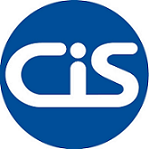Allergy and immunology specialists provide expert medical care for patients with allergic and immunologic disorders. These specialists may serve as consultants, educators, and physician scientists in asthma, allergic disorders, immunologic disorders, and immunodeficiency diseases (1).
No subspecialty certificates in allergy and immunology are offered. However, formal special pathways are available for physicians seeking dual certification in Allergy/Immunology and Pediatric Pulmonology; Allergy and Immunology and Pediatric Rheumatology; and Allergy and Immunology and Adult Rheumatology (2).
What does an allergist-immunologist do?
Allergists and clinical immunologists are specialists trained to evaluate, diagnose and manage children and adults with the following types of medical problems and/or conduct basic, translational or clinical research on these types of disorders:
Diseases of the respiratory tract including allergic rhinitis, sinusitis, asthma, hypersensitivity pneumonitis and occupational lung diseases
Allergic diseases of the eye including allergic rhinitis
Diseases of the skin including atopic dermatitis (eczema), contact dermatitis, urticaria and angioedema
Adverse reactions to foods, drugs, vaccines, stinging insects and other agents
Gastrointestinal disorders caused by immune responses to foods including eosinophilic esophagitis and food protein-induced enteropathies
Immune-based disorders such as severe combined immunodeficiency syndromes and other primary or acquired deficiencies in lymphocytes, antibody, complement or phagocytic cells
Diseases associated with autoimmune responses to self-antigens and autoinflammatory syndromes
Stem cell, bone marrow, and/or organ transplantation and gene therapy
Systemic disorders including anaphylaxis, mastocytosis and mast cell activation syndromes, hypereosinophilic syndromes and vasculitis
Many allergists/immunologists choose clinical careers in either private office or teaching hospital clinics, while others are involved primarily in research at medical schools or in government or industry. Academic allergists/immunologists frequently combine patient care with medical school teaching and research (3).
How to become an allergist-immunologist?
Specialty training required prior to certification: Prior certification in Internal Medicine or Pediatrics; two years in Allergy and Immunology.
In the United States, becoming an allergist/ immunologist requires at least an additional nine years of training beyond a bachelor’s degree. After completing medical school, physicians complete three years of residency training in pediatrics or internal medicine or four years of combined medicine/pediatrics, and pass an examination to become certified by either the American Board of Pediatrics (ABP) or the American Board of Internal Medicine (ABIM). This is followed by two years of additional training in an allergy/immunology fellowship program and certification by the American Board of Allergy and Immunology (ABAI) after successfully passing their certification examination. Diplomates of the ABAI possess in-depth knowledge of disorders of the immune system and have unique expertise in immunobiology, immunochemistry, inflammatory and autoinflammatory disorders and the use of immunomodulatory treatments for allergies, asthma and immune-mediated disorders.
Sources

American Academy of Allergy, Asthma and Immunology
aaaai.org
555 E Wells St
Ste 1100
Milwaukee, WI 53202
(414) 272-6071
General inquiries: [email protected]
Membership: [email protected]

American College of Allergy, Asthma and Immunology
college.acaai.org
85 W Algonquin Rd
Ste 550
Arlington Heights, IL 60005
(847) 427-1200
Email: [email protected]

Clinical Immunology Society
clinimmsoc.org
555 E Wells St
Ste 1100
Milwaukee, WI 53202
Phone: (414) 224-8095
Fax: Fax: (414) 272-6070
Email: [email protected]